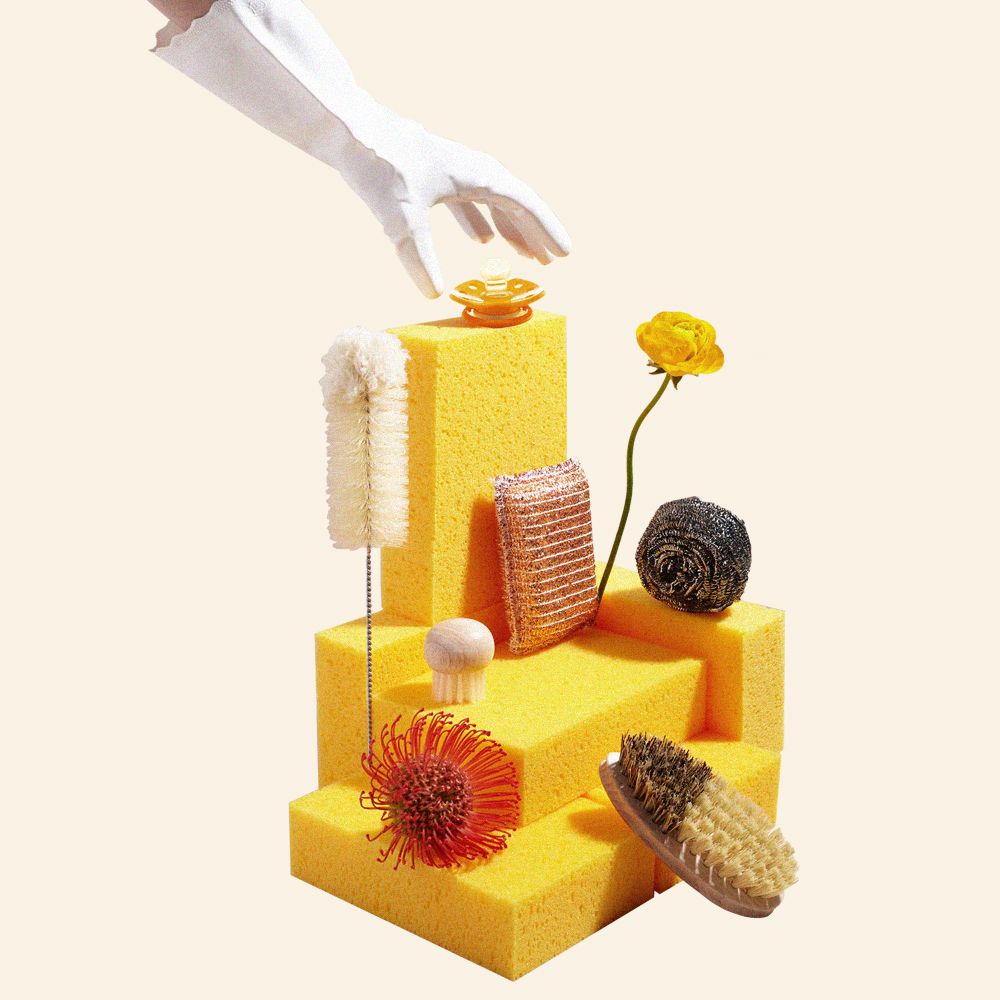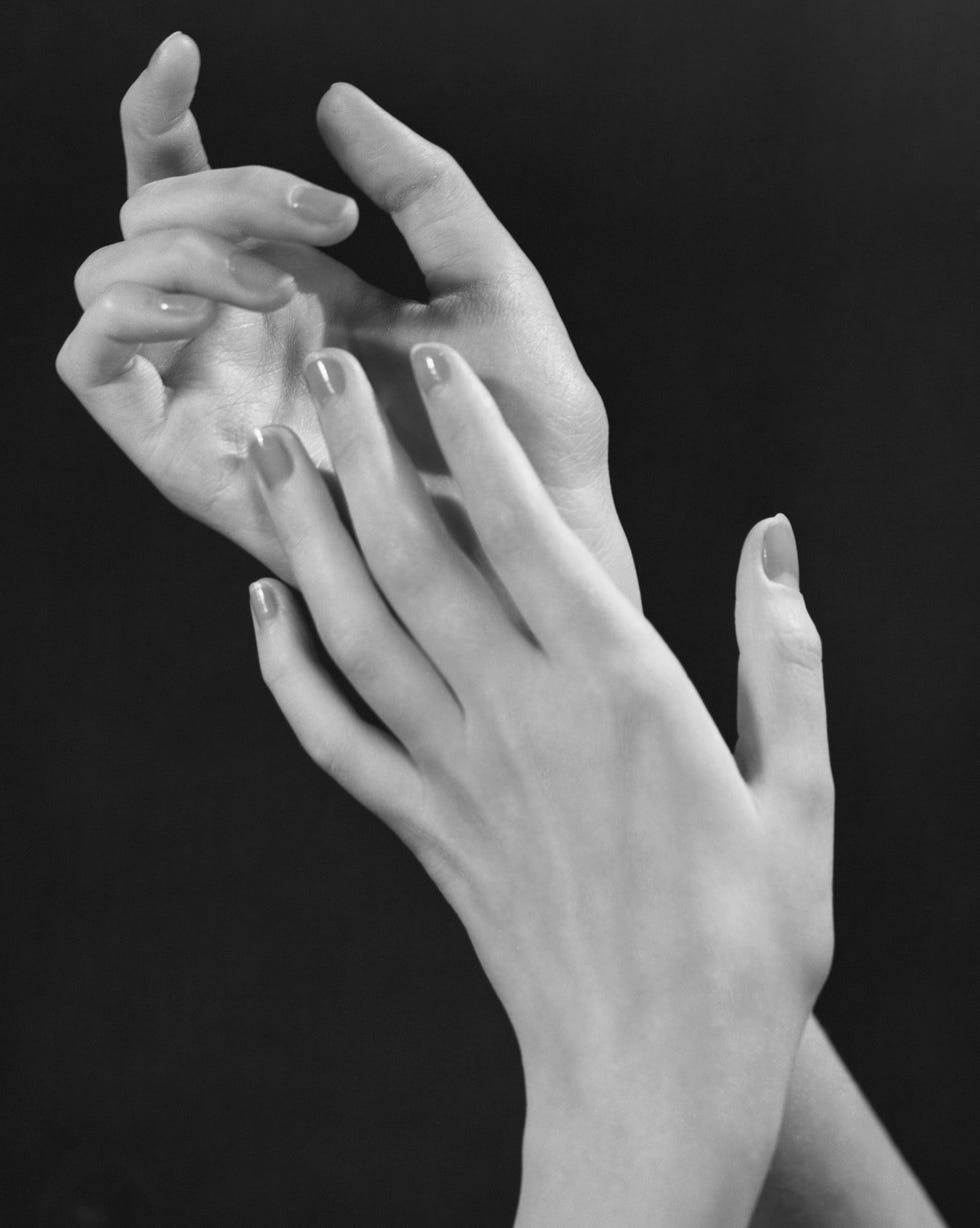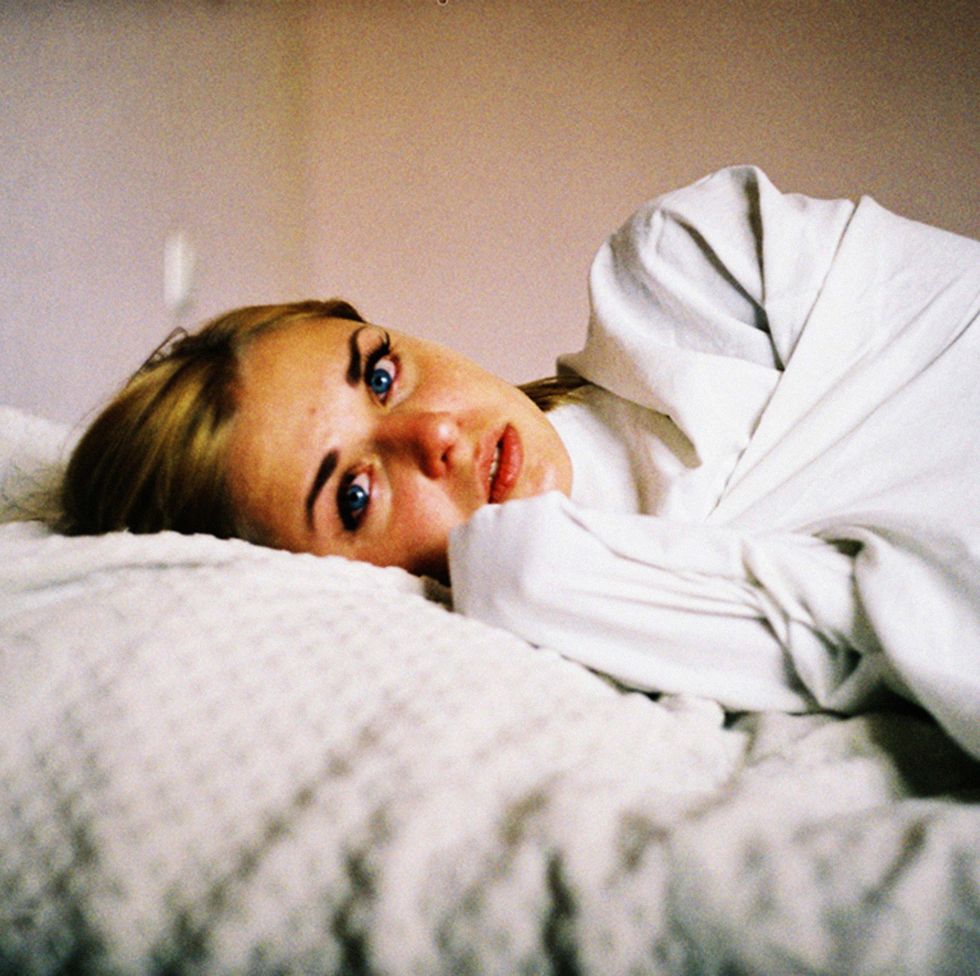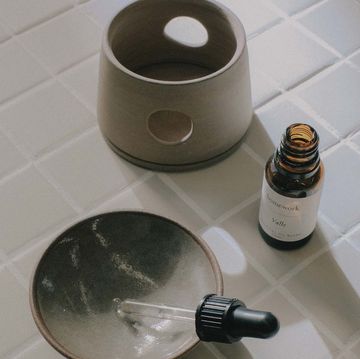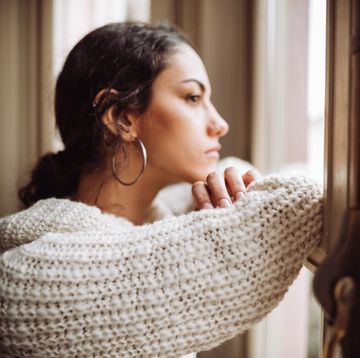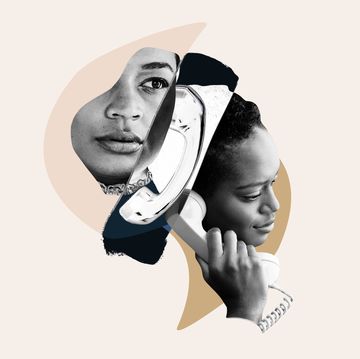I first noticed it when I was eight. Some girls at my drama group looked a bit grubby and, when I came home, I felt like I needed to wash away any connection with them. But once I'd washed, I felt really distressed that the towel I'd used was still in the house. I didn't want to touch it – and I didn't want to touch anything or anyone who had touched it either.
In my twenties, this feeling returned. But my strategy for coping with the unease had evolved from my mum washing towels at a high temperature to me throwing away certain possessions.
If a mug or some bed linen made me feel uncomfortable, I would just bin it. I started doing extra cleaning and not letting my husband help in case he didn't do it properly, or spread the 'contamination'.
Eventually I stopped other people from coming to our apartment – even some friends and family felt contaminated to me.
I still somehow managed to commute two hours into the City, where I worked as an executive assistant to a CEO. It was a cut-throat environment and you had to be constantly on top of your game or risk losing your job. Colleagues would think some things I did were a bit odd – like cleaning my desk with anti-bacterial wipes – but no one knew I had OCD. The whole day I felt like I was holding my breath, waiting until I could get home and wash.
As soon as I stepped over the threshold to my flat, I had to take off all my clothes onto a bin bag, wash my hands, shower, put my dirty clothes in the washing machine (making sure they didn't touch anything else), dispose of the bin bag, then vacuum the patch of floor where it had been sitting.
I was completely aware how absurd my actions were. Sometimes I'd stand there hoovering and crying, feeling physically sick about what I was doing but just totally unable to stop. I washed my hands even when they were bleeding – I was getting through an entire pot of hand soap every single day.
We desperately wanted a baby, but my husband and I were struggling to conceive which, combined with the stress of keeping it together at work, made my symptoms even worse.
Eventually, I confided in my boss and he agreed to let me cut down my hours. Outwardly, he appeared understanding, but one day I found a message in his sent emails telling HR to compromise me out of the business. I had to leave my job with just four weeks' pay.
I was gutted, but I gradually started to improve using some OCD self-help books. Spurred on by the progress I was making, Mark* and I decided to explore fertility treatments.
IVF didn't work at first, so I was given a double hormone dosage that left me feeling totally irrational. Multiply PMT by a thousand and you might come close. I could barely leave our bedroom and Mark would bring me back shop-sealed sandwiches to eat. But I was still told I'd remain on an NHS waiting list for six months.
Thankfully, the hormones worked and I became pregnant with twins. My parents wanted to share our joy but I couldn't be near them. When their gift of some vouchers arrived, the communal hallway became 'contaminated', as did the postman and the neighbours. Soon I was cleaning for eight hours per day.
On Boxing Day, we ran out of cleaning products and Mark drove us to Tesco. When we reached the carpark I completely broke down. At that moment, I just wanted to die. I couldn't face going back to the contaminated apartment and so we checked into a hotel to escape it for a while.
But that isn't how OCD operates. When we got to our room I felt an urge to clean our shoes – of course, my anxieties had followed us.
We moved to another hotel, and another, and bought new clothes, putting the cost on credit cards that we couldn't afford. We ended up renting another apartment and for the first two months I was stuck in one room again, eating just sandwiches and fruit – not ideal for someone expecting twins.
After eight months, I was eventually seen by the NHS hospital psychiatrist, who could refer me to the OCD specialist I'd researched.
I met with her several times but when I refused for the third time to take medication I didn't feel would help me, she suggested I might need to be placed in a mother and baby unit once the twins were born. I feared days of separation from my babies and my secondary care team told me that the twins had been assigned a social services case worker. I was hysterical.
But when I reached 30 weeks pregnant, I finally got to see the OCD specialist and meeting him was just like a ray of light. Finally, I didn't have to explain my illness to someone – he just got it. He even sent some statistics to my psychiatrist to explain how unlikely it was that I would be a danger to my babies. I wondered if she'd thought I'd bleach the twins but I knew I'd never harm them. Even when I had suicidal thoughts, a little voice said to me you're pregnant, you're finally pregnant.
By the time I went into labour, I was well on the way to recovery and social services closed my case. Even when there were hairs on the toilet seat and in the shower in the delivery suite, I was able to use them anyway. After the worst nine months of my life, I'd finally made it.
Three and a half years later, we're now a happy, functioning family of four. But when I reflect on what we lost, I still feel choked.
It's not just my career or the apartment, which we ended up having to sell. It's years of not hanging out with friends on a Saturday, of not having barbecues or just sitting in the pub. You don't notice it creep up at first – you think I'll just wipe that or I'll just throw that away, it's only a cup. But today it's a cup and tomorrow it might be your house.
For OCD Information and support for yourself or someone you know, please contact:
OCD-UK Advice Line: 0845 120 3778
Email: support@ocduk.org
OCD Action Help line: 0845 390 6232 / 020 7253 2664
Email: support@ocdaction.org.uk
*Names have been changed
This article was originally published in 2017.
